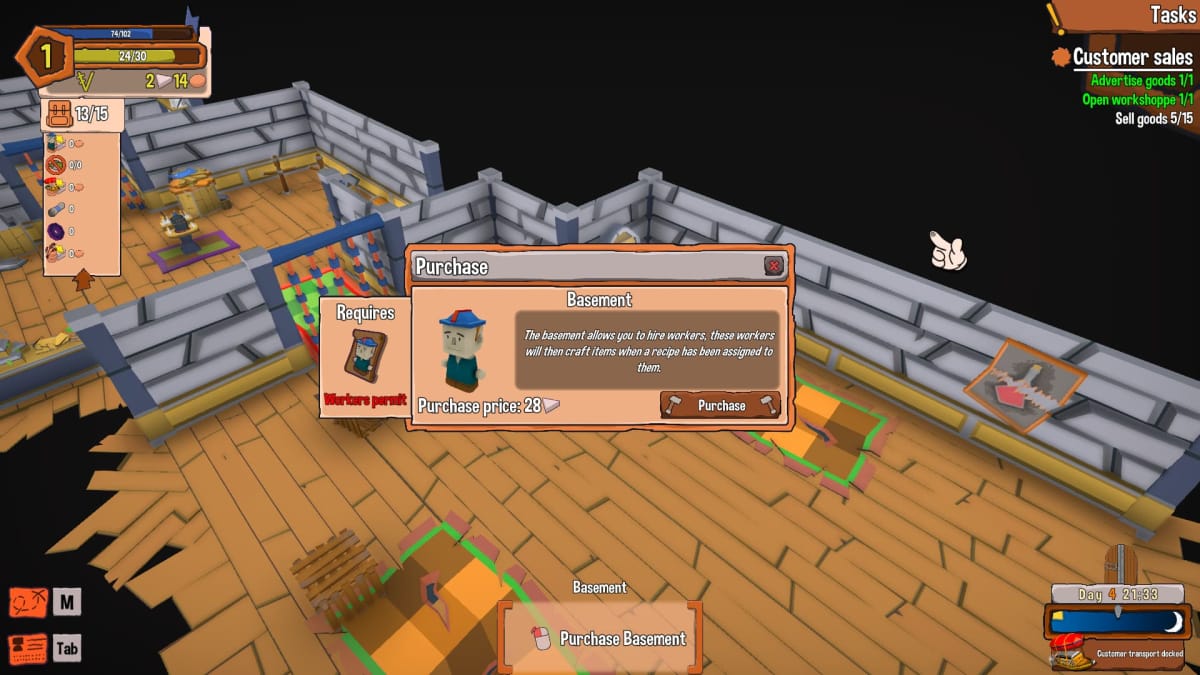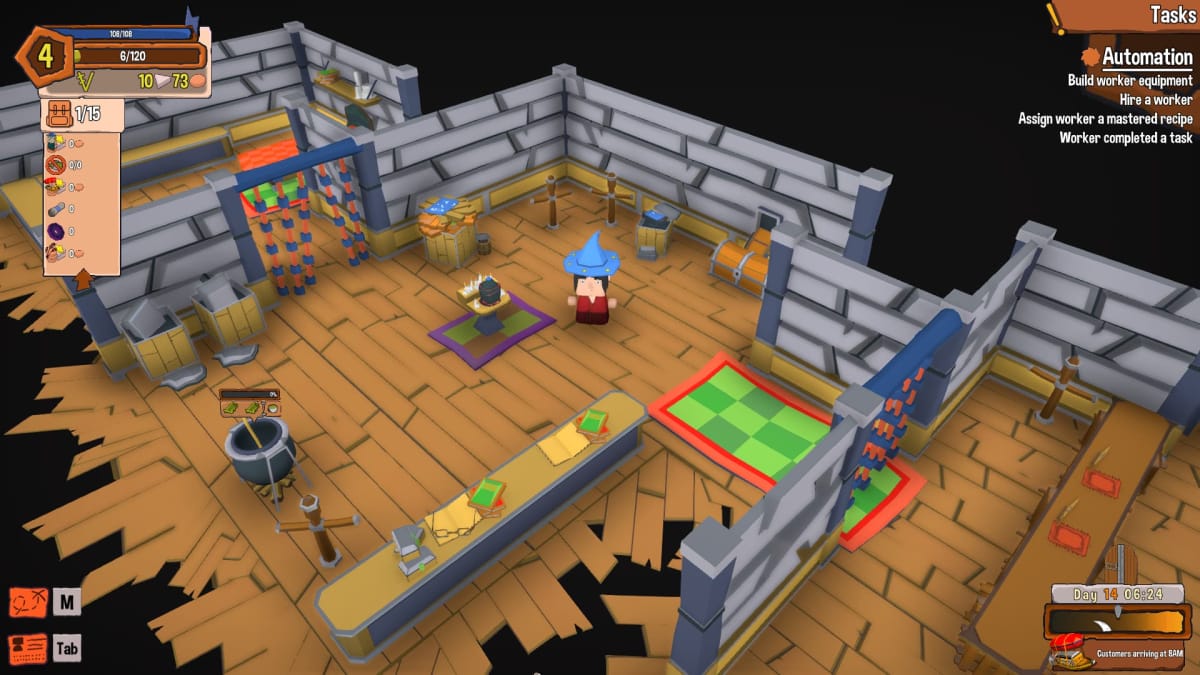The main focus of Cratlands Workshoppe is being able to manage a shop and make a high-profit margin. As most who have played shop-focused games know, though, this is never an easy task, especially when you begin balancing out all your costs. Craftlands Workshoppe isn't a hard game by any means though. If you are willing to put in the time and effort, then you can easily master the game's numbers without even breaking a sweat. Here's how you can do some effective Craftlands Workshoppe management!
The Profit-Making Basics
When you start out your workshop, you will be given access to one of three permits available at the town hall and pushed through a quick tutorial that teaches you how to make items. Once you master your first item, you will notice that the game really lets you start to explore around on your own. You will be tasked with selling 20 of the same item, so you can learn to master them and unlock new recipes; the game will also task you with unlocking the basement so you can have workers.
At this stage, you will want to experiment with making the new items you unlocked and keep tabs on the material cost vs. what you are making off of selling the item. Of course, there are a few ways to ensure you make more off of the item, like by selling them to customers with a star or by advertising them in the shop menu. You should also check out the accounting book in your crafting room so you can learn to keep tabs on all of your workshops costs.
- Quick Tip: If you are making an item regularly, then always keep it advertised.
Your workshop will have customers between the times of 8 am and 9 pm. You can leave the shop open while you make items and run errands. If a customer appears wanting an item that you don't have, be sure to quickly send them away so that another can replace them. You will also have customers that want to use your table. You must clean up after each one to make the space available again. Use the time after your shop is closed to run into town to get supplies and brew items. The shops never close, and if they have a sale going on, then you can save a ton of money.
Your first major goal is unlocking the basement. To do this, you should avoid selling the first recipe you mastered and instead focus on making your newer recipes as these are much more profitable. After a few days of selling your new items, you should have more than enough money to open the basement. Once you do this, you unlock the ability to hire workers to make your shop an automated experience.

Hired Help and Finance Managment.
The basement unlocking doesn't mean that you are going to automatically get someone to run your shop. It actually just opens up the option, and there is quite a bit of work to do before you can sit back and watch the money roll in. Every worker has both a hiring and daily cost. Before you can use them at all, you will need to pay the hiring cost, which is a bit steep for a new workshop. Every worker also has stats; the better they are, the faster they can work.
You must ensure that the workers have their payment each day and supply them with materials as best as you can. If they run out of money or materials, then your profits will be at a painful standstill. Always keep an eye on your accounting book each day to ensure that your workers are still bringing in money. Keep in mind that you can take over the shop and pause your workers at any time by not paying them for the day. This is a great tactic to use if you need or want to make a large purchase, but having a worker the next day would bring you too close to the red.
It's best to save up for the cost of the worker and a couple of days' pay before hiring them to ensure you have a smooth transition. Once you hire the first worker and give them a place to make items, you will notice that your money is starting to grow. At this point, you should focus on upgrading your workshop and acquiring the other permits to expand your inventory.
Once you get a bit farther into the game, you will open up the option to ship your orders. This allows you to sell off more goods than you can in your shop but will require a lot of work. You will also unlock the option to grow or harvest your own ingredients instead of having to go through a middle man. Once you reach this stage, you will really want to focus on hiring workers to run the shop while you worry about managing the supply aspect.
Have a tip, or want to point out something we missed? Leave a Comment or e-mail us at tips@techraptor.net













